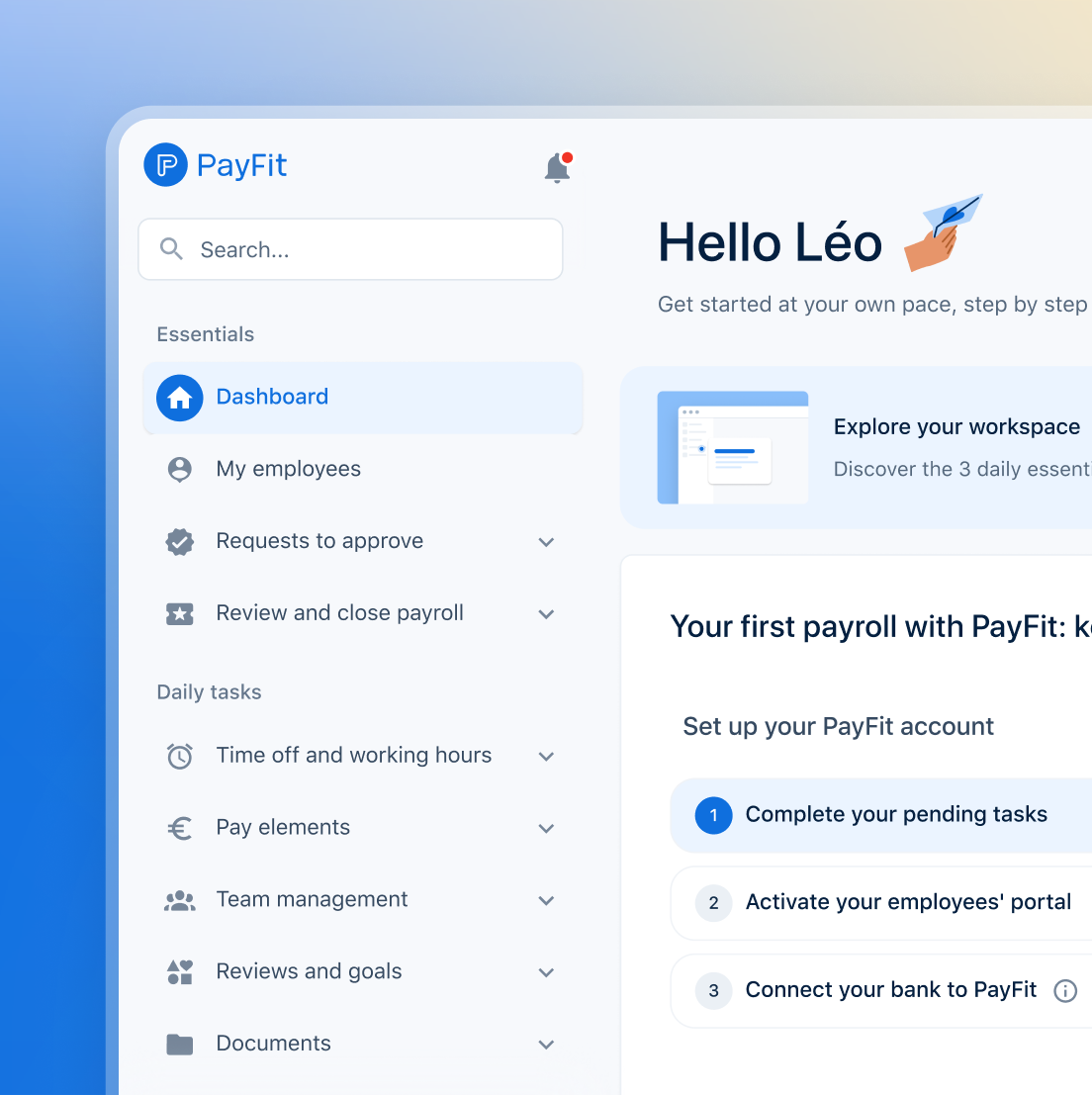✨ Health insurance, now in PayFit - learn more
💷 All the rates & thresholds you need to know for 25/26...right here
✨ The Payroll Journey: Start, Scale & Succeed Globally - learn more
✨ Health insurance, now in PayFit - learn more
💷 All the rates & thresholds you need to know for 25/26...right here
✨ The Payroll Journey: Start, Scale & Succeed Globally - learn more

As attitudes towards work and retirement continue to shift, together with the ongoing high cost of living in the UK, the practice of ‘unretirement’ is becoming more and more common. There was a noticeable uptick in economically inactive 50-64 year olds in light of the COVID-19 pandemic, however, the trend in the UK seems to have been turned on its head since the end of 2022, with an increase in the percentage of retired workers returning to the workplace.
But what exactly do we mean by unretirement, why do workers ‘unretire’, and how can UK employers both benefit from and support older workers returning to the workplace?
We answer HR and business leaders’ burning questions below.
Quite simply, the phrase ‘unretirement’ refers to the act of returning to work after having retired. This can be either by choice or necessity. Unfortunately, taking into account the spike in the UK cost of living in recent years, it tends to lean more towards the latter.
The COVID-19 pandemic, and the re-evaluation of work and life priorities, were major catalysts for a mass exodus from the workforce of those nearing the typical retirement age in 2020 - widely known as ‘The Great Resignation’. Some of those between ages 50-64 who felt they had broadly enough money to retire brought the date forward, with others seeing the pandemic as an opportunity to scale back their working hours.
In 2020, just over 25% of 50-64 year olds were economically inactive, i.e.: not working. By the end of 2022, this had risen to over 27%, the consequences of the shrunken workforce being both a skills and experience gap, as well as a general labour shortage.
But as the Cost of Living crisis took hold in the UK in 2021 and 2022, ‘Baby Boomers’ started returning to the workplace en masse. In keeping with tradition, this trend has been dubbed ‘The Great Unretirement’.
Despite being a less-than-ideal situation for those towards the higher end of the 50-64 age bracket, unretirement brings with it a host of opportunities and benefits for UK employers, as well as a duty of care to nurture and support older workers to do their best and be their happiest.
Workers unretire either through choice, or necessity. In the latter’s case, whilst it’s unfortunate that a worker feels compelled to return to work as they cannot afford to retire, the evolution of working practices means that this isn’t always a bad thing. For example, many are now able to work 1 to 2 days a week from home as a supplement to their private and / or state pension.
Research shows that the Great Unretirement is indeed being driven mainly by financial necessity, followed by personal fulfilment, such as the need for a work-life balance, wanting to feel recognised or valued, and to socialise with others. Perhaps unsurprisingly, low-skilled workers are far more likely to unretire for financial reasons, whereas those with more specialised skills or a higher income level unretire for the fulfilment reasons above.
Then again, the prestige that comes with a higher paid job, a significant position within a company and the social connections that can bring is often enough to tempt those who could afford not to work again back into work.
One of the greatest assets that older workers can bring to your business is experience. The skills, wisdom and knowledge built up over a lifetime of work can provide a fountain of insight for others within your teams and give you a competitive edge. And as we’ll come onto later, older workers can engage in two-way mentorship programs with younger staff, sharing their knowledge and experience in return for digital skills brush-ups and training.
Plus, a multi-generational workplace is a diverse workplace, which can help bring a broad range of skills, perspectives and approaches to work.

There’s lots that employers can do to support unretiring staff, from the perspective of providing the right re-training, integration, pay, benefits and flexibility when it comes to working arrangements.
But then there’s also the case to be made that businesses can do better at supporting over 50s considering leaving the workforce early (a staggering 63% of respondents to a recent survey), and doing more to keep them in work that little bit longer. Further developing people’s skills, providing great training opportunities and personal development are seen as effective ways of incentivising UK over 50s to stay at your business, owing to anxieties around new technology and the skills needed to use it.
A large number of over 50s are exiting the workforce early because they feel they can’t keep pace with new technology, with even more saying that the tech skills requirements of modern workplaces make it more difficult for them to unretire, even if they wanted to.
The first way to solve a problem is to understand it, and now that we understand the digital skills gap is a huge barrier to returning workers, a comprehensive digital skills training program can be a great tool for companies to implement.
This program can be embedded within your organisation at every level, with digital competencies included as part of your performance management initiatives as a factor to determine progress and development within roles. It can thereby help keep your talented older workers at your company and perhaps reassure others that unretirement, in some capacity, can be a positive experience for them.
Age discrimination is real, with many different research studies finding a majority of older workers have experienced it in the workplace. This is especially true in the tech sector, where innovation is seen as being a preoccupation of the young. So businesses need to work on ways of creating harmony and inclusivity across all age brackets.
A great way of doing this is through a knowledge-sharing or mentorship scheme. Older workers, with a lifetime of experience, wisdom and know-how, have a lot to offer younger staff in terms of communication, skills-specific and strategic advice. Conversely, the younger generation can help unretirees learn about emerging trends and show them the all-important digital skills they may lack.
With this dialogue-based approach, a mutual appreciation and understanding can develop and create a real win-win situation.
Your compensation and rewards strategy should be designed with all ages in mind. But when it comes to retaining older workers, or coaxing them back into work, policies which reward loyalty can go a long way. For instance, many companies benefit from adding an additional day of annual leave with each year of service. This means that an employee passing the age of 50, who may have been with the business for many years, could enjoy a much greater degree of free time to spend with their families, on holiday or simply relaxing, much like a semi-retirement scenario.
Pay should always be defined by a combination of skills, experience, performance, and length of service, so based on these your older employees should technically be in line for enhanced packages, which could entice them either to stay or come back. It’s important to communicate this clearly in job ads and correspondence if targeting older workers specifically.
It can also be hugely rewarding to offer health and wellness benefits as part of your package, which can help employees of all ages feel energetic, active and cared for whilst in your employment.
Giving older employees real autonomy to choose their working times and places and communicating this to them effectively will be of great reassurance to those looking to balance a return to work with plenty of rest time.
A barrier to unretirement can be the perception that the individual will be going from days spent at leisure back to a full blown 9-5. But with the right degree of flexibility, for example, shorter working hours, part-time contracts, or simply the ability to choose working places and times, this can benefit not just older workers but your whole business too.

Phil Strazzulla, SelectSoftware Reviews
Fostering an age-inclusive workplace that embraces employees, both young and old can give businesses a competitive edge when it comes to knowledge, skills and experience. Integrating older workers back into the workplace can help younger staff learn a thing or two that they might otherwise not have known, and in return the younger generations can provide invaluable digital skills mentoring, a win-win for all involved.
A lot of unretiring UK workers aren’t returning out of choice but necessity. And in these cases it is especially important for employers to do what’s needed to re-train, integrate and provide the autonomy needed to make it a rewarding and enjoyable experience for all concerned.
Find out how PayFit helps UK HR & Finance teams get granular insight on business demographics and foster inclusive workplaces for all - book a demo of our innovative HR & payroll software below.


Draft ‘Equality (Race and Disability) Bill’ 2024: new measures, what it includes, how businesses can prepare

In light of the International Transgender Day of Visibility 2024, let's explore how HR teams can effectively support transgender employees and create a more inclusive environment.

Our guide to Ramadan advice for employers details exactly how HR teams can support and make accommodations for Muslim employees.

International Women's Day is marked annually on 8 March. It's an opportunity to celebrate the achievements of women all across the globe.

If your organisation has 250+ employees, chances are you'll need to submit a Gender Pay Gap report. We offer a quick summary of all you need to know.

Reducing gender pay gaps within your business is key. Here, our partner, pihr, shows how data can help businesses get the insight needed to do so.

See what's new in PayFit
New features to save you time and give you back control. Watch now to see what's possible